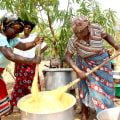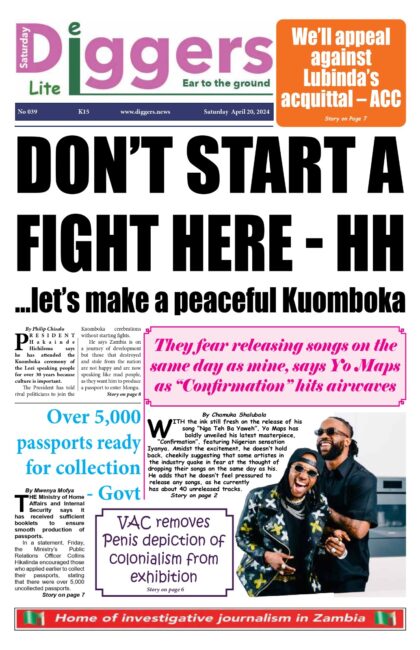CARITAS Zambia has wondered why relief beneficiaries are not receiving the full package outlined in the Disaster Management and Mitigation Unit (DMMU).
In an interview, Caritas Zambia executive director Eugene Kabilika said despite a balanced diet being laid out, beneficiaries were only receiving part of the package.
“What is written and what is supposed to be given by the standards of DMMU is actually a standard diet which provides for carbohydrates, protein and all the necessary things. Like when you talk about maize, talk about beans, kapenta, cooking oil, which is really like, by Zambian standard, that’s what it should be but what gets to the actual beneficiaries is a completely different thing. So, you find that the beneficiaries may only get mealie meal, kapenta, beans and all that, or sometimes they get just beans and kapenta or cooking oil, the rest, mealie meal is not there. So it is really actually the implementation of the actual response to the relief which is problematic,” Kabilika said. “As you know, DMMU itself does not have full capacity to be able to deliver to the beneficiary, they rely on those who help them but through the government systems, it is very problematic because from our experience as Caritas, especially over the 2019/2020 season, it was really political. We monitored the distribution of food in Eastern Province, in Shangombo and also some part of Western Province. The people who are in charge of DMMU distribution at the local level literally politicize the whole process. In some places, they were even fighting because they were accusing each other of favouring relatives, this and that. So it became problematic, it is the implementation itself which has been broken down. I will give an example of Sioma, food went to waste there, nobody was able to take it to Shangombo because from Sioma to Shangombo, it is a bit problematic and it was just marooned and people who needed to get it could not because these administrative [problems] that were holding that. So, that becomes quite a bit of a problem.”
He further said the government and stakeholders needed to work together to ensure that the vulnerable were cushioned during the COVID-19 pandemic.
“When you talk about intervention on the impact of COVID-19, especially on the poor households, we are looking at people, like those who live on hand to mouth where they have a small garden and they sell or they buy vegetables from sellers and they go and sell. Maybe they even just make a K50 or something like that. What should have happened actually is to assess how many of those households are vulnerable and we already have figures from vulnerability assessment by DMMU in the areas that were affected by floods, the areas that were affected by drought in the 2019/2020 season…I know and I am aware that the World Food Program is in the process of supporting so many people on social cash transfer and [vulnerable] households in this time of COVID-19. It will be very useful to help them so that maybe they can live through this difficult situation. So government should have followed that line,” said Kabilika.
“I know that government also has a Social Cash Transfer [programme] but it has been shrouded with all these controversies and all that so much that now, it is not even clear how many are still benefitting or whether it’s still happening. If you ask the beneficiaries, some of them will tell you that they haven’t received any for the last seven months, for the past 10 months so it’s not very inconsistent. If it’s consistently done, that can be good, but on the other hand also, civil society organisations that are involved in livelihood [programmes] should be able to find ways and strategies of helping people to increase their production in as far as responding through agriculture and all that. So a concerted effort of everyone who has that can able to alleviate the poverty of the suffering, the vulnerable and those that are affected.”












